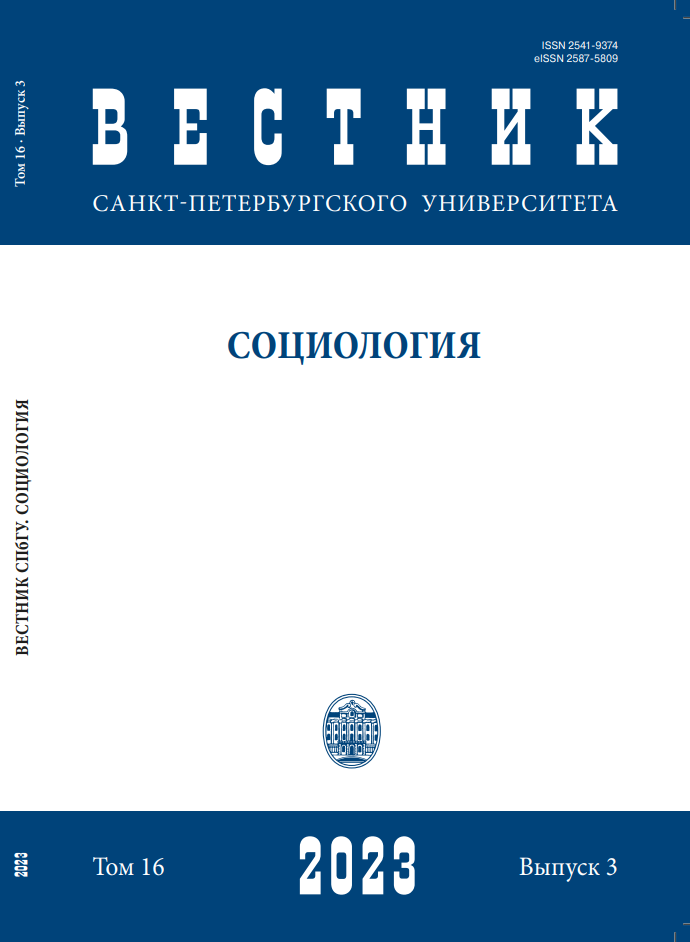Motives for participation of youth in unauthorized protest actions
DOI:
https://doi.org/10.21638/spbu12.2023.302Abstract
In-depth study of real motives for participation in protest actions could contribute a lot to increase effectiveness of educational activities and preventive maintenance with youth. Young people as a socio-demographic group have a high potential for civic participation and they are going to determine the strategy of the country’s political development in a few decades. The thesis deals with the analysis of the results of the field research on motives for the participation in unauthorized protest actions, conducted in July — September 2021 for the Committee on Youth Policy and Interaction with Public Organizations of St. Petersburg. The following research questions arise: Why do the youth of St. Petersburg participate in unauthorized political actions? What are the major political issues that concern young people most right now? Are protests an effective form of political participation, according to the participants? What are there other effective forms of political participation? Research method — focusgroup with young people of different age, participated in unauthorized protest actions. We revealed significant age differences in motives, perception of current socio-political situation, and awareness of political issues. For adolescents the key motives for participation in unauthorized protest actions are curiosity, interest, and the desire for new emotions, while for adult youth — the desire to express displeasure with the current socio-political situation.
Keywords:
political participation, protest sentiments, motives for participating in unauthorized protest actions
Downloads
References
* Аналитический центр Юрия Левады внесен Минюстом в реестр иностранных агентов
* Yuri Levada Analytical Center is included by the Ministry of Justice in the register of foreign agents
Downloads
Published
How to Cite
Issue
Section
License
Articles of "Vestnik of Saint Petersburg University. Sociology" are open access distributed under the terms of the License Agreement with Saint Petersburg State University, which permits to the authors unrestricted distribution and self-archiving free of charge.




